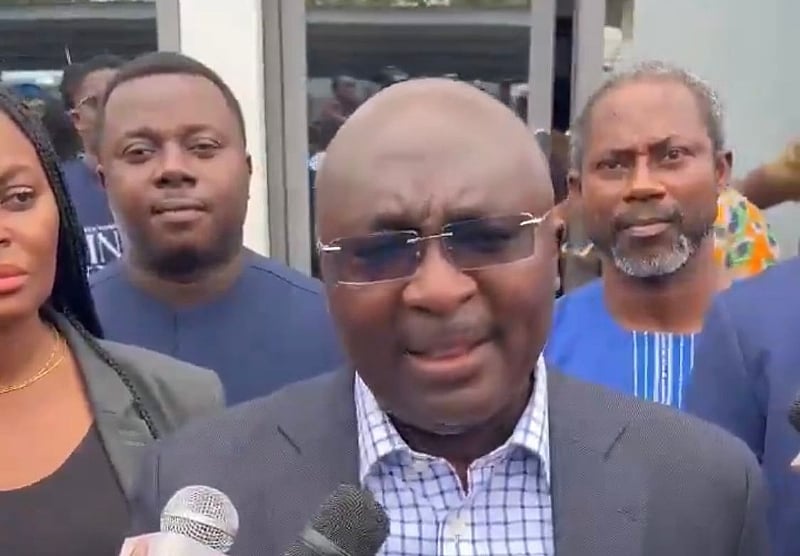The political landscape in Ghana is heating up as the New Patriotic Party (NPP) gears up for its flagbearer elections in January 2026, setting the stage for the 2028 general elections. Former Vice President Dr. Mahamudu Bawumia, a prominent contender for the NPP flagbearer position, has leveled accusations of intimidation against the ruling National Democratic Congress (NDC). He alleges a systematic campaign by the NDC to suppress dissent and target NPP members, including party executives, social media activists, and former government appointees, using state security agencies as instruments of political pressure. This alleged targeting, according to Dr. Bawumia, underscores the urgent need for unity within the NPP to effectively challenge the NDC and reclaim power in the upcoming elections. The arrests of prominent NPP figures like Chairman Wontumi and Chairman Abronye, along with the alleged harassment of other party members, have become focal points in Dr. Bawumia’s narrative of political intimidation.
Dr. Bawumia’s claims of intimidation cast a shadow over the democratic process in Ghana, raising concerns about the potential misuse of state power to silence political opposition. The use of security agencies to target political rivals is a tactic often associated with authoritarian regimes and undermines the principles of free and fair competition that are essential for a healthy democracy. If these allegations are substantiated, they represent a serious challenge to the integrity of Ghana’s political system and could erode public trust in the neutrality of state institutions. The accusations also highlight the importance of independent oversight and accountability mechanisms to ensure that law enforcement agencies operate within the bounds of the law and are not used as tools of political persecution.
The NPP, currently in opposition, faces a complex challenge. While navigating the accusations of political intimidation, the party must also manage its internal competition for the flagbearer position. Five contenders, including Dr. Bawumia, are vying for the leadership role, each bringing their own strengths and political baggage to the table. The field includes seasoned politicians like former Assin Central MP Kennedy Agyepong, former Agric Minister Bryan Acheampong, former Education Minister Dr. Osei Yaw Adutwum, and former NPP General Secretary Kwabena Agyei Agyepong. The internal dynamics of the NPP, including the potential for factionalism and personal rivalries, could significantly impact the party’s ability to present a united front against the ruling NDC.
The upcoming flagbearer election is a critical juncture for the NPP. The chosen candidate will not only represent the party in the 2028 general elections but will also play a crucial role in shaping the party’s future direction and platform. The election outcome will likely be influenced by a range of factors, including the candidates’ individual appeal, their policy positions, their ability to mobilize support within the party, and the broader political climate in Ghana. The ability of the NPP to effectively address and counter the allegations of intimidation by the NDC will also likely play a role in shaping public perception and influencing voter choices.
The accusations of intimidation, coupled with the upcoming flagbearer election, create a dynamic and potentially volatile political environment in Ghana. The NPP’s ability to navigate these challenges will be crucial for its electoral prospects in 2028. A strong and unified NPP is essential for a vibrant and competitive democracy in Ghana, offering a viable alternative to the ruling NDC and ensuring that the voices of all citizens are heard and respected. The outcome of the flagbearer election and the subsequent general election will have significant implications for the future direction of the country.
The political future of Ghana hinges on the ability of all political actors to engage in a fair and transparent democratic process. Addressing the allegations of intimidation and ensuring a level playing field for all parties is paramount to maintaining public trust in the political system. The upcoming elections will be a test of Ghana’s democratic institutions and its commitment to upholding the principles of free and fair elections. The outcome will not only determine the next leadership of the country but also shape the future trajectory of Ghanaian democracy. The world will be watching as Ghana navigates this crucial period, hoping for a peaceful and democratic outcome that strengthens the country’s political stability and reinforces its commitment to democratic values.


